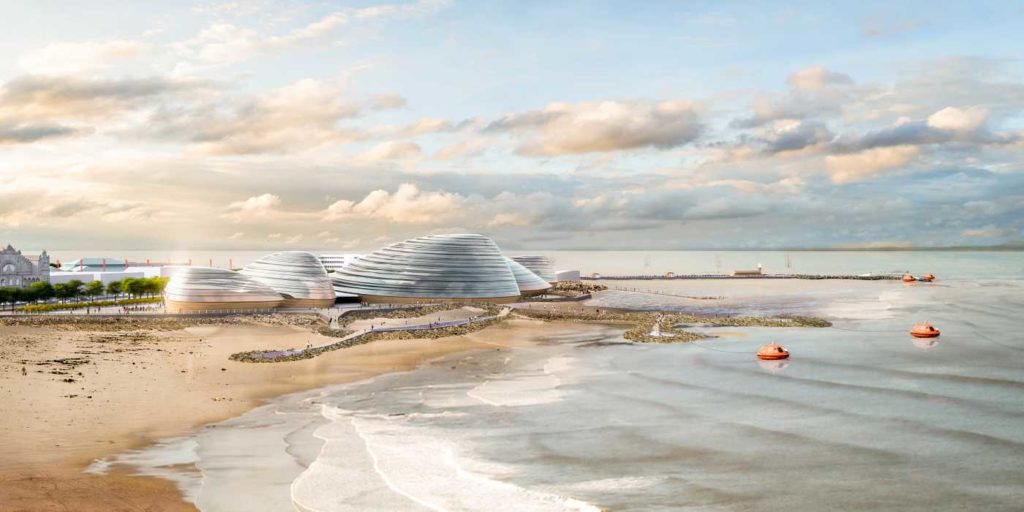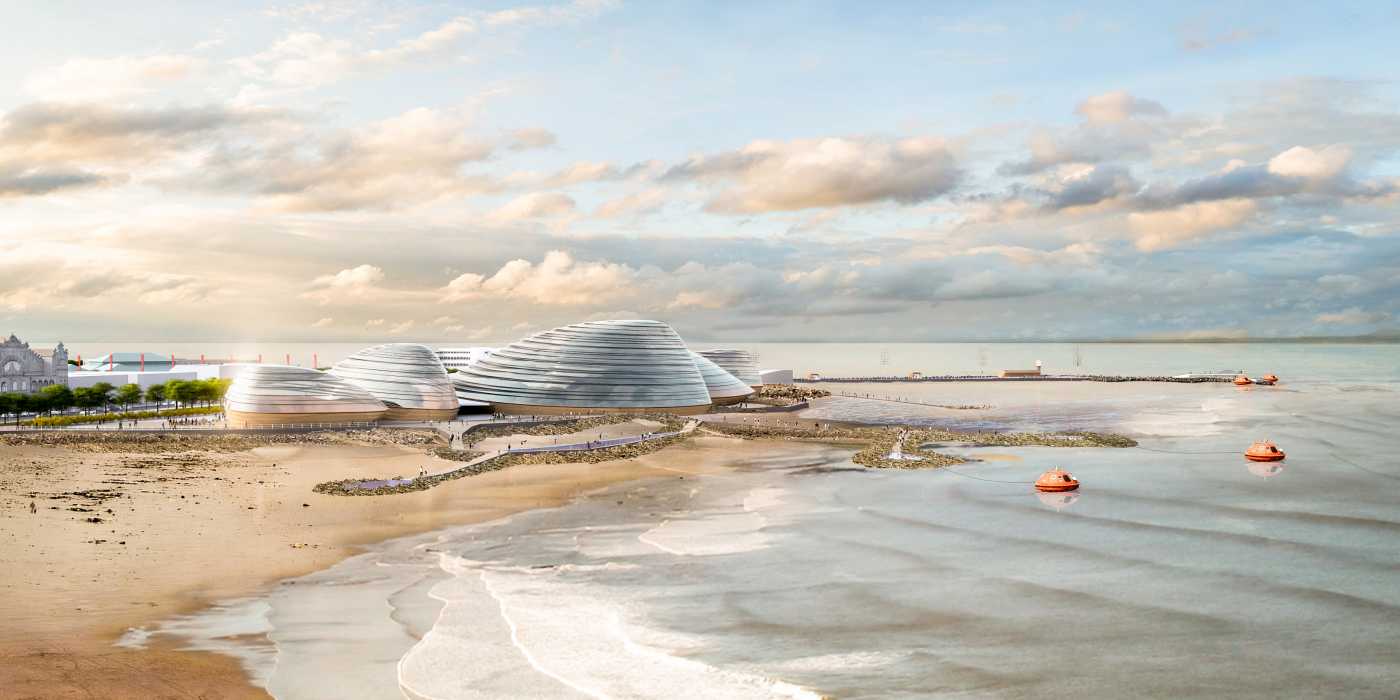Morecambe, UK
Morecambe is a coastal town on the Irish Sea. It comprised the hamlets of Poulton, Bare and Torrisholme until 1889. Passage of the necessary legislation officially named the area Morecambe. Formed in 1894, the Urban District Council freed the town from governance by the Borough of Lancaster (until 1974, when Lancaster again took charge).
But various parties referred to the area as ‘Morecambe’ beforehand. The formation of its Harbour and Railway Company took place in 1846. Its constructed railways reached Skipton, Keighley and Bradford by 1850. A settlement grew around the harbour and railway – to service the port, and marking the start of a seaside resort. Consequently the settlement began to be referred to as ‘Morecambe’. Furthermore, the naming of a steam locomotive (built for the South Durham and Lancashire Union Railway) included ‘Morecambe’. This indicates it was already in unofficial use in the area.
The railways brought more visitors – especially from Yorkshire, and from Scotland – seeking seaside refreshment, entertainment and accommodation. Morecambe adapted to these needs throughout the second half of the nineteenth century. As a result, Morecambe has a diverse and vibrant collection of Victorian buildings: including the Winter Gardens (1897) and Park Hotel.
After a lull, Morecambe enjoyed a second period of growth in the 1930s. Working people became more affluent, and the end of the decade saw paid holidays enshrined into law. Morecambe thrived in the 1930s. New buildings included the Midland Hotel (1933) and lido (1936), as well as pier pavilions, cinemas, shops in Art Deco style.
However, it wouldn’t be long until new package holidays overtook the British seaside experience as a desirable escape. Consequently, Morecambe followed the path of economic decline.
Eden Project North

Eden Project North C Grimshaw Architects
Morecambe has attracted regeneration and investment, and significantly with Eden Project North. This ambitious project intends to reimagine the seaside resort for the twenty-first century. The town motto during its tourism heyday was ‘Beauty Surrounds and Health Abounds’. The project has far-reaching environmental, social and economic aspirations, but above all it will be a day out that hopes to inspire connection with the natural world. It is due to open in spring 2023, following a two-year construction period.
Eden Project North will share much with the Eden Project in Cornwall. It will be a ticketed visitor attraction, with large indoor environments, housed within pavilions, at its heart. It will build on the Eden Project’s programme of entertainment and education. As in Cornwall, Eden Project North will combine exhibits, performance, learning, play, immersive experiences, world-class horticulture, art, food, beverage and retail spaces, building on nearly 20 years of operational experience.
External spaces and landscaping will link the venue sensitively to its location – to Morecambe Bay and to the town. Building on the work of key partners, in a location of internationally-recognised scientific importance, the collaborative team will seek to make the Bay a place that is understood and celebrated.
Morecambe, from seaside resort to Eden Project
Morecambe, UK
Morecambe is a coastal town on the Irish Sea. It comprised the hamlets of Poulton, Bare and Torrisholme until 1889. Passage of the necessary legislation officially named the area Morecambe. Formed in 1894, the Urban District Council freed the town from governance by the Borough of Lancaster (until 1974, when Lancaster again took charge). But various parties […]

